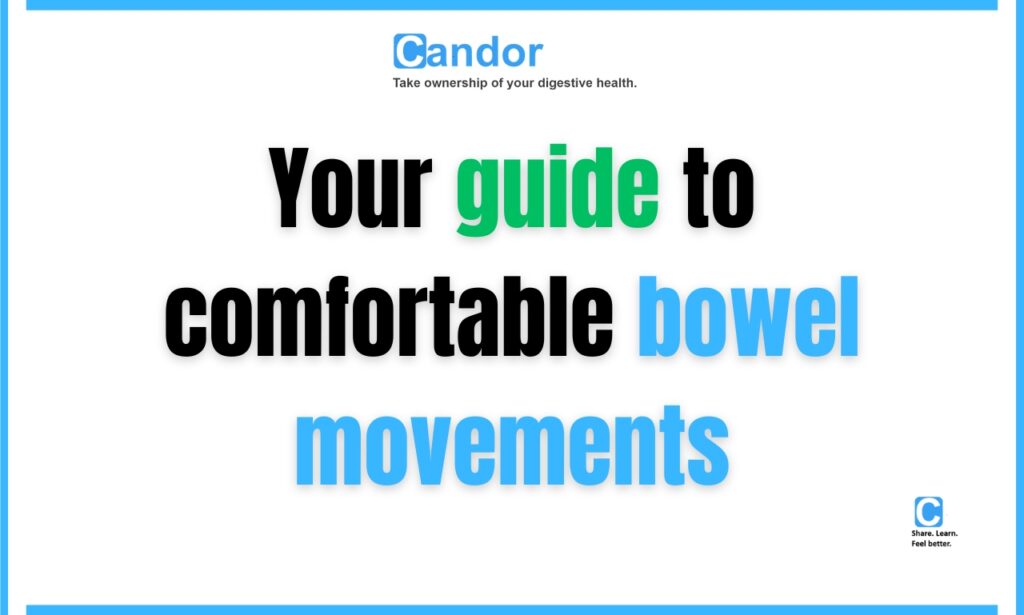
Navigating the intricacies of digestive health effectively can greatly influence comfortable bowel movements. Contrary to the mysterious nature we often attribute to our bodily functions, there are practical steps that can be taken to optimize this essential aspect of our well-being.
Dietary Fiber
Delving into the specifics of dietary fiber reveals its crucial role in normal bowel movements. Present in vegetables, fruit, and whole grains, both soluble and insoluble fiber contribute to stool consistency. Soluble fiber dissolves in water, providing a soft foundation, while insoluble fiber adds bulk and moisture. Achieving a well-formed, normal stool hinges on the presence of both types of fiber.
Gut Bacteria
Beyond the realm of fiber, the balance of gut bacteria is paramount for the comfort of bowel movements. These microorganisms play a pivotal role in determining the speed of movements in the large intestine. An unhealthy balance can significantly impact bowel motility, leading to either diarrhea or constipation.
Choosing a diet that supports a healthy gut is essential. Junk food and greasy, fatty foods can upset the delicate balance of gut bacteria, potentially causing stronger gut contractions and leading to urgency in bowel movements.
Consulting with a Dietician
In the pursuit of better bowel health, seeking guidance from a certified dietician becomes valuable. Studies have shown that specific dietary interventions, such as incorporating probiotic foods or following a low-FODMAP diet, can respectively boost or reduce gut bacterium to help resolve bowel irregularities.
The individualized approach offered by a dietician can provide targeted solutions to improve gastrointestinal symptoms and enhance overall digestive health.
Proper Hydration
The impact of hydration on comfortable bowel movements extends beyond the confines of the bathroom. Ensuring an adequate intake of water is essential for optimal stool condition. Men are generally advised to consume around 13 cups (3 liters) daily, while women should aim for 9 cups (2.2 liters).
Every cell in our body depends on water for proper function, and most of the water we consume is absorbed through liquids and food. The role of water in bowel movements is significant—insufficient water intake can prompt our bodies to draw water from forming stool in the large intestine, resulting in harder and more challenging-to-pass stools.
Dietary Interventions
Eating the right foods is a cornerstone of promoting a satisfying bathroom experience. A well-balanced diet that incorporates plenty of vegetables, some fruit, lean protein, and healthy fats not only contributes to overall health but also plays a pivotal role in maintaining normal digestive system function.
Observing body patterns, embracing public restrooms, and stimulating bowel movements through strategic measures contribute to a smoother process. Tips for the actual act of going to the bathroom include avoiding straining, recognizing when you’re done, and considering alternative positions like squatting.
Bowel Stimulation
While the ideal time for a bowel movement aligns with our body’s natural rhythm, understanding and influencing this process can offer a sense of control:
- Pay Attention to Patterns: Observing when your body signals it’s time for a bathroom visit can help you tap into your internal bio-rhythms, making the process smoother.
- Don’t Avoid Public Restrooms: Overcoming embarrassment by recognizing the purpose of public restrooms is crucial. Avoiding them and waiting to evacuate until you get home can lead to health issues like hemorrhoids and chronic constipation.
- Stimulate Bowel Movements: Recognizing the body’s cues and responding accordingly can involve consuming a large meal with healthy fats, drinking hot liquids, or incorporating exercise. These actions can stimulate the gastrocolic reflex, promoting movement within the digestive system.
Tips for Going to the Bathroom
In the realm of bathroom etiquette and habits, a few considerations can further enhance the overall experience. Try to avoid straining as relaxation is key during bowel movements. Straining can lead to the pushing out of anal tissue and the development of hemorrhoids.
Paying attention to your body’s signals and recognizing when you’ve passed a well-formed stool is crucial. Pushing beyond this point may result in releasing softer, watery stool meant to stay inside for firming up for the next bowel movement.
Some individuals find that adopting a squatting position eases the process of defecating. This can be experimented with by propping up feet or considering products that modify a regular toilet into a squatting toilet.
Bathroom Hygiene
Maintaining basic hygiene practices post-bowel movement is not only courteous but also crucial for overall health. Thoroughly cleaning the area surrounding your anus is essential to avoid irritation and infection. Using gentle wipes or flushable wipes can provide added comfort, especially for those prone to irritation.
Integrating these diverse elements into your daily regimen promotes enhanced comfort during bowel movements. The intricate interaction of staying well-hydrated, making mindful dietary choices, maintaining gut health, and adopting thoughtful bathroom habits collectively forms a holistic strategy for optimizing digestive well-being.
References:
- “Definition and Facts for Irritable Bowel Syndrome”. NIDDKD. February 23, 2015.
- Chey WD, Kurlander J, Eswaran S (March 2015). “Irritable bowel syndrome: a clinical review”. JAMA.
- Whitehead WE, Palsson O, Jones KR (April 2002). “Systematic review of the comorbidity of irritable bowel syndrome with other disorders: what are the causes and implications?”. Gastroenterology.
- Brenner DM, Moeller MJ, Chey WD, Schoenfeld PS (April 2009). “The utility of probiotics in the treatment of irritable bowel syndrome: a systematic review”. The American Journal of Gastroenterology.



























